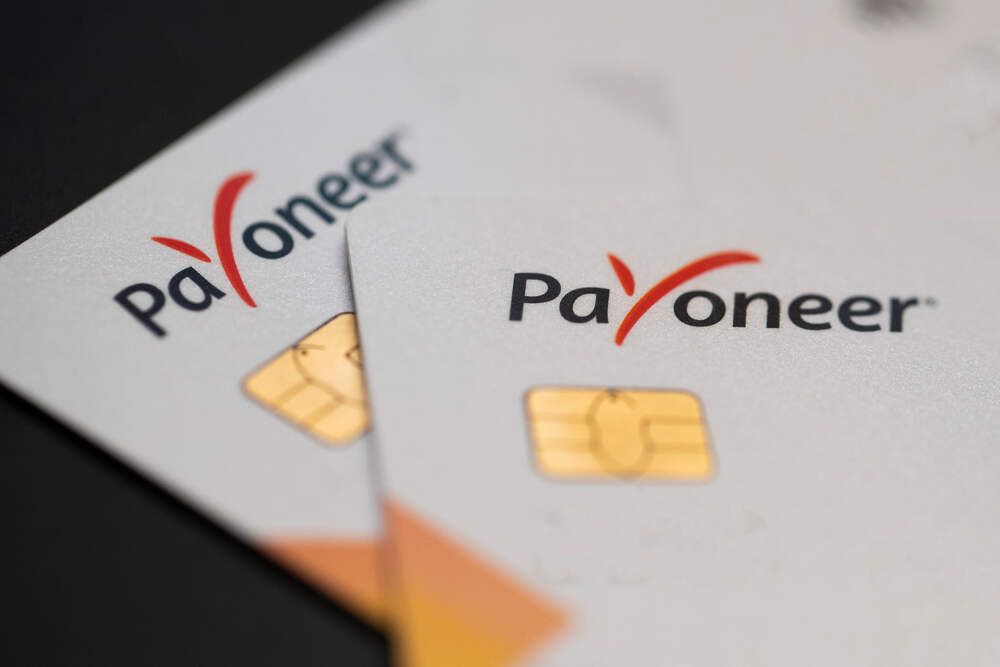What Can You Buy With Crypto?
Cryptocurrencies like Bitcoin are increasingly accepted for real-world purchases. From watches to cars, electronics, and more, retailers are embracing crypto payments. Ready to explore some popular ways where you can spend crypto in the real world? Read this ultimate guide to find your answers.

Cryptocurrencies like Bitcoin have exploded in popularity in recent years. What started as a fringe movement among tech enthusiasts has transformed into a booming market embraced by major companies and investors. But beyond trading and investing, can you use cryptocurrencies to buy real-world goods and services? The answer is yes. You can even buy USDT with a debit card to participate in the crypto market.
While cryptocurrencies may not be as widely accepted as traditional payment methods yet, the list of retailers and service providers accepting them is growing every day. Let's explore some of the main categories where you can spend crypto in the real world.
Online Retailers Pioneering Crypto Payments
Several large online retailers led the way in accepting cryptocurrencies on their platforms. Overstock.com was one of the first major retail websites to welcome crypto users in 2014. The home goods company decided to embrace emerging digital currencies, a forward-thinking move that appealed to its tech-savvy customer base.
Over the years, Overstock has processed hundreds of millions of dollars worth of Bitcoin payments. The company lets customers instantly convert crypto balances to US dollars so they don't have to worry about Bitcoin's volatility. Popular tech marketplace Newegg also got in the game early, accepting Bitcoin as payment since 2014 as well. Newegg customers can use Bitcoin and Bitcoin Cash to seamlessly pay for everything from laptops and TVs to gaming keyboards and smartphones.
In addition to these retail giants, specialized cryptocurrency marketplaces emerged where users can spend their coins. Bitify, for example, operates like an eBay-style site for the crypto community, facilitating peer-to-peer sales using various digital tokens.

Brick-and-Mortar Stores Embracing Crypto
In addition to online stores, cryptocurrencies are slowly being adopted in brick-and-mortar retail as well. Major companies like Starbucks and Whole Foods accept crypto through intermediaries like Bakkt and Flexa. Hundreds of small independent stores, cafes, and restaurants also welcome direct crypto transactions.
Coinmap.org provides an interactive map of over 16,000 physical merchants happy to take your Bitcoin, Ethereum, Dogecoin, and other coins. Savvy entrepreneurs recognize the importance of appealing to crypto users who collectively hold billions in uncommon digital assets. Stores displayed on the Coinmap can be filtered by country and business type, letting crypto users find options conveniently nearby.
From clothes boutiques in San Francisco to pizza joints in New York, crypto commerce keeps growing in the physical world. Of course, restrictions still apply depending on store policies and local regulations. And not all staff may understand new payment flows. But progress marches steadily forward.
Paying for Travel With Crypto Coins
In addition to physical products, an increasing number of travel companies now allow clients to pay for transportation, hotels, and tourism using blockchain assets. CheapAir has been one of the foremost pioneers in crypto-powered travel booking. As early as 2013, the online travel agency kicked off Bitcoin integration so customers could book flights and hotels with coins. Over 15 million dollars worth of Bitcoin has been accumulated by CheapAir over the past few years. The company also set up support for additional cryptos like Dash, Bitcoin Cash and Litecoin in response to community interest.
Another innovator, Destinia Travel has hooked up with the alternative payment platform Utrust to facilitate blockchain payments. Users can now search flights and hotels on Destinia and pay seamlessly with popular tokens including ETH, BTC and UTK. Destinia specializes in travel across Europe and Latin America. So for anyone holding cryptocurrency, options certainly exist to spend that value on real vacations including flights, rental cars, lodging, tours or anything else involved with travel arrangements.
More Ways to Spend Crypto: Donations, Food, Services
Beyond physical commerce, cryptos also provide novel ways to fund causes you care about. An increasing number of nonprofits and charities now happily accept direct coin donations. EFF, Greenpeace, United Way, ACLU and the Wikimedia Foundation have set up crypto contribution channels, making it easy to give back some of your portfolio growth over the years.
Many food and beverage establishments also embrace cryptocurrencies, especially in major metro areas. From groceries to restaurants and bars, companies recognize some customers prefer to spend emerging digital assets. Particularly for more expensive purchases, paying directly in crypto allows patrons to avoid the usual 2-3% credit card processing fees. Apps and sites like CoinFork provide listings in major cities of crypto-friendly eateries.
And almost any service can potentially be paid for in cryptocurrency given the peer-to-peer nature of blockchain payments. Freelancers offering design, writing, programming, consulting and other skilled services often quote rates in Bitcoin or other cryptos. Some entrepreneurs even conduct their entire operation strictly using digital tokens, especially in cases where traditional financial access remains difficult or impossible.

How Paying With Crypto Works
To those unfamiliar with blockchain currencies, paying directly with crypto may sound complex or risky. But with several easy options now available, transacting with Bitcoin or Ethereum proves no more difficult than swiping a credit card or Paypal order. For online purchases, selecting a checkout option like "Pay with Bitcoin" handles the heavy lifting behind the scenes. Customers simply copy-paste their BTC public address or scan a QR code. Crypto payment processors then take the transaction through the final stages including exchange rate conversion and identity verification.
Physically in person at retail stores, apps like BitPay generate temporary QR codes tied to a chosen currency amount in dollars. Store staff can scan your QR code as displayed on a mobile screen for effortless checkout. Payment firms typically offer instant crypto conversion to traditional money so merchants don't have to hold Bitcoin long term or manage legal compliance directly.
It's true that paying with cryptocurrency represents more mental overhead currently versus old-school cash or cards. Values fluctuate daily introducing some uncertainty when budgeting expenses. And not all employees fully grasp operational nuances around still experimental fintech. However, exploring innovative finance options expands horizons and pushes society in positive directions. For willing pioneers, crypto commerce unlocks a future driven by decentralization, transparency and financial inclusion.
Investing in Crypto Assets
To purchase cryptocurrency in the first place of course requires registering with an established exchange platform. Users can conveniently buy, sell or trade popular coins like Bitcoin, Ethereum and Litecoin through brokers like Coinbase. Nearly 10% of Americans currently hold some blockchain assets.
Once your crypto balance exists in a secure digital wallet, spending options keep increasing day-by-day. Whether paying for flights, laptops, donations, beers or haircuts, cryptocurrency empowers financial transactions no corporate middleman can block. Volatility remains an inherent aspect of growth. However long-term trends point toward expanding utility and eventual mass public adoption.
For forward-looking individuals and businesses, getting in early on the coming rise of blockchain commerce and finance seems like a strategic bet. Sure we may look back decades from now and laugh at the novelty of directly spending Dogecoin or Stellar Lumens on real products. But pioneer spirit is about embracing sea changes shaping the future, not just protecting the stability of past approaches. With an open mindset, paying or accepting payment via cryptocurrency offers exciting possibilities.



